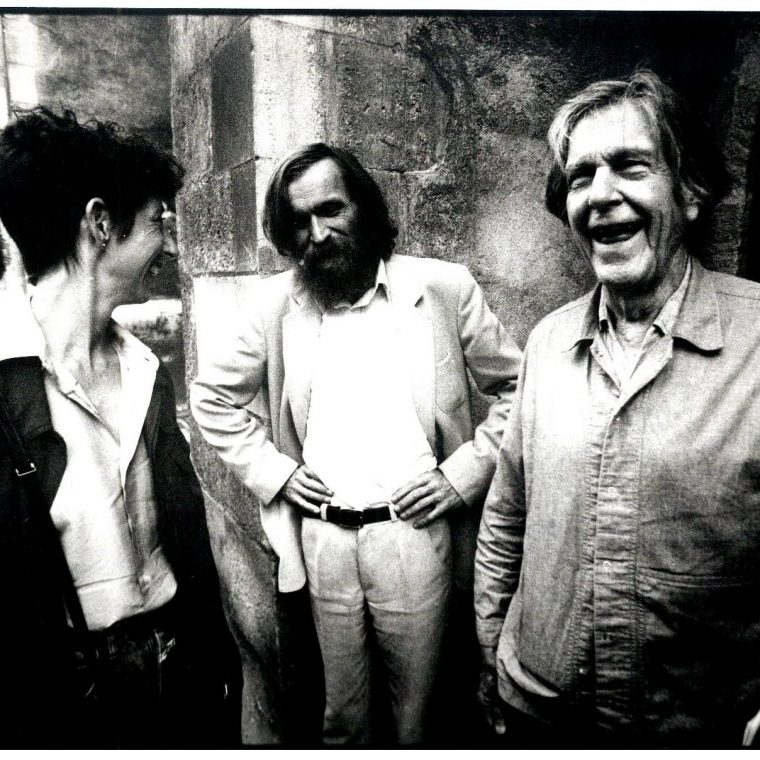The idea of organising the first international festival of contemporary music in Slovakia gradually came to fruition in the course of 1989, when Daniel Matej won a scholarship from the Music Fund Slovakia to participate in the dramaturgy of the well-established “Mondays in the Klarisky” concert cycle, in which the programme concept favoured 20th-century music and Slovak works had a strong presence.
During creative debates with the management of the Music Information Centre of the Music Fund, as well as with several representatives of the music scene, the idea of trying to condense “the Mondays” into a single week as part of an international project gradually took form; the ideological line was to follow on from the “Smolenice seminars” from the turn of the 1970s as well as from the activity of the VENI ensemble, active on the music scene since 1988, of which Daniel Matej was the joint initiator and artistic director.
Even though this idea was “approved” by the then head of the Music Fund even before November 1989, the event only took place for the first time from June 25th to 29th 1990, that is within a “free” Czechoslovakia. Since the beginnings of the festival, the “return to Smolenice seminars” was present in the idea of a key composer or performer, around which the whole programme concept would be built. The Evenings of New Music were thus symbolically “opened” by the Dutch composer Louis Andriessen.
The festival’s first great “peak” was in 1992, when John Cage attended, turning the Evenings of New Music into an event that was part of the year-long celebrations of his eightieth birthday.
Another “peak” was in 1995, when the festival was devoted to the 70th anniversary of the death of Erik Satie. The “… morceaux en forme de poire” international composition project was quite an exceptional event during that year of the festival, with a premiere by the world class pianist John Tilbury and an international musicology symposium devoted to Satie’s work, which was the first event of its kind anywhere in the world.
The year 1995 marked the end of the first stage of the festival, which since its inception had been both organised and financed by the Music Fund, and conceived by its Music Information Centre with Daniel Matej as its main dramaturge. From 1996, the Slovak section of the ISCM became its main organiser. Daniel Matej became the event’s artistic director, and the programme each year was designed in cooperation with Marek Piaček, Peter Zagar and other members of the Czech (Jaroslav Šťastný) and Slovak music scene (in particular Milan Adamčiak and Juraj Beneš).
The highlight of this event’s “second stage” was in 2000, when the Evenings of New Music joined in the celebrations for the 250th anniversary of the death of Johann Sebastian Bach in the form of various composition projects (this was the year which probably saw the highest number of premieres in the festival’s history).
Another highlight of this stage was 2004, celebrating the anniversary of the birth of two defining figures in 20th century music: Charles Ives and Arnold Schoenberg, materialising above all in the form of the “Tone Roads” international composition project, which was premiered by the phenomenal Belgian pianist Daan Vandewalle.
The last, 20th jubilee festival was “closed” by Louis Andriessen (the same person who “opened” it in 1990), when two of Andriessen’s works, Mausoleum and De Staat, were played at the closing concert, which was also the opening concert of another important event, the 10th Melos-Ethos biennale festival (the festival was founded in 1991); according to the composer, this concert was the only one in which both works were played together. The creators of Evenings of New Music thus “bade farewell” to their public at this exceptionally demanding – both in organisational and financial terms – concert with music which they had dreamed of during the festival’s entire existence and which they would never have succeeded in presenting without their cooperation with the Melos-Ethos biennale…
~ Daniel Matej
